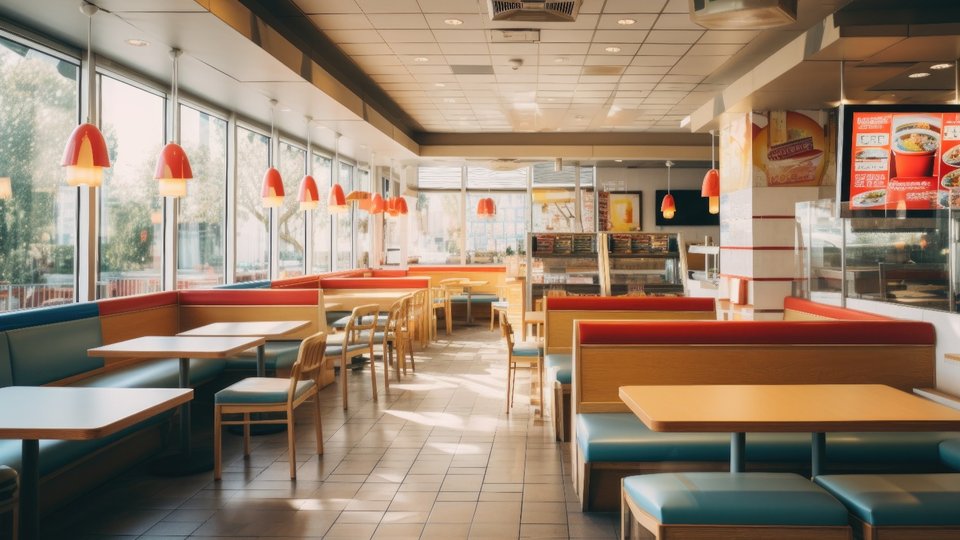Operations
6 steps to opening a food business
Opening a food business requires specialized equipment, hiring a staff, securing funding and more. Check out these six steps to opening a QSR.

July 12, 2024 by Mandy Wolf Detwiler — Editor, Networld Media Group
The aroma of fried onions, the sizzle of a perfectly cooked hamburger, the satisfied smiles of customers enjoying your creation — these are the sights, sounds and rewards that fuel the passion of aspiring restaurateurs. But translating that passion into opening a food business takes more than just a killer recipe. It requires a well-defined plan, a deep understanding of the industry and the ability to navigate legalities and logistics.
Whether you envision a food truck operation or a franchise business, this guide will equip you with the essential steps to transform your culinary dream into a thriving reality.
Concept and planning
This is where the magic begins. You'll need to formulate and create a solid business plan outlining your concept, looking at your target market, creating a menu, offering financial projections and coming up with a marketing strategy. If you're working with a franchisor, most of this is done for you, but you'll need to look at opening a food business within your community and formulate your business plan for the neighborhood you propose to open in.
If you're considering adding a food truck to your existing business plan, you'll need to factor in the costs associated with running the food truck, including the truck itself, permits and licensing fees.
Include a mission statement that offers lenders a description of your food business's concept and purpose. You'll need to let potential lenders know how you propose to make your food business work.
A business plan also will need an organizational chart showing how your team will be set up.
Securing funding to open a food business
Research your financial options when opening a food business. Bootstrapping, loans, small business grants and finding investors are all possibilities. You'll need to determine how much capital you'll need to get started and create a realistic budget.
If you're opening a franchised location, the Franchise Disclosure Document (FDD) will have most of what you need to open a food business spelled out. It's up to you to find financing, but your franchisor may be able to help with programs like the Wetzel's Pretzels' Access to Equity program, which helps women and minorities secure funding.
Location, location, location
A franchisor will help you determine the best place for your food business. You'll need to choose a strategic location with high visibility and good foot traffic. You'll need to consider rent, accessibility and competition in the area. QSRs are competitive in towns, and you want to make sure there's not a competitor in your backyard.
A location analysis should be amongst your first actions. There are companies and technologies that can help factor in both vehicle and foot traffic, visibility and demographics. Can you support lunch and dinner, and breakfast if you choose to offer it?
While you're choosing an initial location, if you're buying into an area with a franchisor, you're probably already thinking about a second or third location. Will there be enough space between locations?
Permits and licenses for opening a food business
You're going to need to research all the necessary permits and licenses required to operate a food business in your area. Health department inspections, food handling permits and business licenses are some of the most common requirements. You'll even need to consider a music license to play music in your restaurant.
If you're working with a general contractor, he or she will help with building permits. A certificate of occupancy shows that your space is zoned for running a restaurant and will show that a restaurant is up to code and up to date on inspection. Ask your builder if a CoO is needed for your building.
Equipping your kitchen
One of your biggest expenses will be equipment. Depending on your concept, you'll need to acquire the necessary equipment to prepare and store food safely and efficiently. Among your most important pieces of equipment will be the grill and the fryer, but you'll also need prep tables, a dishwasher or two, a mixer, a convection oven and food storage equipment.
A franchise will require proprietary equipment to make signature dishes. You could need smoothie makers, ice cream machines, proprietary fryers and more.
What technology will you be leveraging in your QSR? Your POS will be the backbone of your operation. Your POS system should do more than just take orders; it should also track orders, payments and maintain kitchen management. It can even track your labor and food costs. Don't skimp when it comes to your POS system and be willing to learn what your POS system can do to get the most out of such an important purchase.
Build your dream team
While you may have a hiring plan on paper for your business plan, actually putting that plan to work is imperative. Your employees will make or break your food business.
Your general manager is the lynchpin in your operation. Restaurant management is not an easy job. You want to hire a GM with strong people skills but also strong skills like motivation, customer service, conflict mediators, trainers and line cooking.
According to Indeed, restaurant managers most commonly have two to three years of experience in leadership, three to four years of management experience and two to three years of food prep, among other skills.
After you hire a GM, you'll need to consider assistant managers, shift leaders, cashiers, cooks, prep staff and dishwashers. Look for passionate and upbeat workers who can handle the fast-paced environments and flexible work environments QSRs produce.
You'll need leaders who are able to mold young minds, as QSRs are often the first job for teenagers. Working with Gen Z requires a special skillset of patience, learning and flexibility.
Following these six steps to open a food business will help you get your start.
About Mandy Wolf Detwiler
Mandy Wolf Detwiler is the managing editor at Networld Media Group and the site editor for PizzaMarketplace.com and QSRweb.com. She has more than 20 years’ experience covering food, people and places.
An award-winning print journalist, Mandy brings more than 20 years’ experience to Networld Media Group. She has spent nearly two decades covering the pizza industry, from independent pizzerias to multi-unit chains and every size business in between. Mandy has been featured on the Food Network and has won numerous awards for her coverage of the restaurant industry. She has an insatiable appetite for learning, and can tell you where to find the best slices in the country after spending 15 years traveling and eating pizza for a living.
 ChatGPT
ChatGPT Grok
Grok Perplexity
Perplexity Claude
Claude








